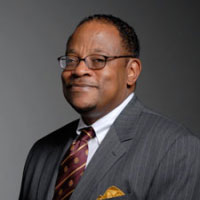
Politics and Values
Perhaps one of the most painful memories I have of my early years in teaching was election night 2004. The pain comes from my too late realization that in my advocacy for a progressive outcome for the election I had semi-wittingly politicized my classroom in a way that still haunts me. I’d like to reflect for a bit on what happened and what I learned.
What happened was quite simple. I was a progressive who was against the war in Iraq and the convulsions caused to our common life by extraction of our common wealth to finance massive tax cuts. Put simply, I was ardently against Bush and made no secret of it. In the weeks leading up to the election and the evening of the it, on which I had a class meeting, my advocacy had had the effect of drawing a political line along which members of the class sorted themselves. A consequence was that for the few weeks remaining after the election my pedagogical space consisted of political partisans and not a community of learners. What I learned from that was three-fold with the full effect being felt in the recent election.
The first thing I learned was that I had spent insufficient time or energy teaching about my values, what they meant for how I understood the faith, and thus, how I constructed the task of teaching theology. Here I don’t mean to imply that I understand my role as being teaching my theology. Rather I want to suggest that it is good to realize that our values are being taught whether we are explicit about it or not. Being explicit means that I can reflectively engage students and materials in ways that shape our common experience. By focusing on values I can invite more people into our space than if it is a matter of politics. I did not do this work.
The second learning was that I had spent insufficient time clarifying how I integrated scripture, faith, values in the work of theology for myself. So, while I am sure that I demonstrated a sort of integrity for my students it was not sufficiently reflective to build my teaching around. Certainly, the project to which I am dedicated as a theologian was/is clear and finds expression through my teaching but, at least at that point, the integrity at the center of teaching and that project were not clear. From this learning I changed my pedagogy radically. Teaching theology and not about it became my guiding pedagogical principle. The upshot of this change was that questions of the integration of scripture, faith, and values as the work of theology were at the center of every course from its beginnings.
In the two classes I taught following the recent election I began with an observation that we as Christian theologians were being called into the public square at this moment for several very specific reasons. First, the candidate who won had made very specific promises about bringing harm to the weakest and most vulnerable among us, our neighbors. By placing promises to register our Muslim neighbors, round up and deport the stranger among us (immigrants), and the imposition of what amounts to martial law (a national stop and frisk policy), at its center the Trump campaign made the political theological. It is just here that my learnings of the past few years made it possible for our class(es) to grapple with our responsibility in this moment in ways that did not immediately devolve into partisan positions. We were able to draw on scripture, the various theologians we read, and our experiences of faith to imagine how to move forward. This was quite a bit different than in 2004. This then was my third lesson. By making the ongoing thread running throughout each class the explicit integration of our faith and values, it was then possible to interpret the political moment as a matter of faith and not partisan politics.
A student summed up well what we had discovered on our journey: “loving and protecting our neighbor is a type of politics.”
Leave a Reply